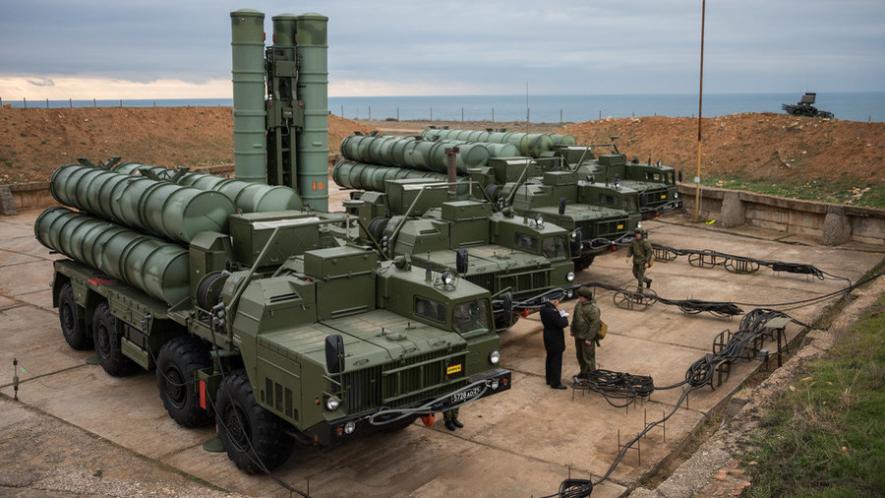US Congressional Committee Calls for Sanctions on Turkey over Russian Arms Deal

Tensions between the United States and Turkey are rising over the latter’s growing proximity with Russia. The US House Foreign Affairs Committee has asked Trump to put sanctions against Ankara over the deal to buy the Russian air-defense system, the S-400. The US has long been trying to pressurize Turkey to back out of the deal. On Wednesday, while Turkey’s president Recep Tayyib Erdogan was in Moscow, the Pentagon chief made a statement that Turkey may procure US-made F-35 fighter jets only if it cancels its deal with Russia for S-400s.
The Trump administration has already suspended Turkey’s participation in the F-35 program last month and has threatened to put sanctions on Turkey under the Countering America’s Adversaries Through Sanctions Act (CAATSA). This legislation passed in 2017, identifies Russia as one of the adversaries of the US, and hence any deal with Russia can invite sanctions.
Russia and the US are the two top weapons exporters in the world. Turkey has been a crucial destination for US weapons export. The US wanted to sell its Patriot missiles to Turkey, which it claims is a better alternative to the S-400. However, Turkey considers the S-400 a better air defense system than the Patriot missiles. The Turkish decision to buy the S-400 has led to the US cancelling its promised sale of F-35 fighter jets to Turkey, as it believes that the deal with Russia can make its technology vulnerable to Moscow’s espionage.
Meanwhile, Russia and Turkey are in the process of consolidating their defense relationship. Russia wants to sell its Su-35 fighters to Turkey and has promised to make Turkey a part of its fifth-generation advanced fighters, Su-57 program.
The US and Turkey are NATO members and have shared a close relationship for decades. They both have held an anti-Russia stance for long. However, the relations between them have suffered ever since Trump has come to power in the US.
Currently, the countries display contrasting positions on a range of issues including, Iran, Israel and Syria. Erdogan’s ideological line seeks legitimacy from sections of the Turkish society who have, in the past, been opposed to closeness with the US and Israel. This constituency, which has hardened its position with the onset of the Trump presidency, is the prime mover behind Erdogan’s shift
Russia and Turkey have even tried to build a joint mechanism in the ongoing war in Syria. Last year, in Sochi, the two countries signed a de-escalation agreement pertaining to Syria’s Idlib province . Despite opposition from the US, they have also initiated a cooperative venture for gas exploration in Cyprus, in the Mediterranean Sea.
Get the latest reports & analysis with people's perspective on Protests, movements & deep analytical videos, discussions of the current affairs in your Telegram app. Subscribe to NewsClick's Telegram channel & get Real-Time updates on stories, as they get published on our website.























